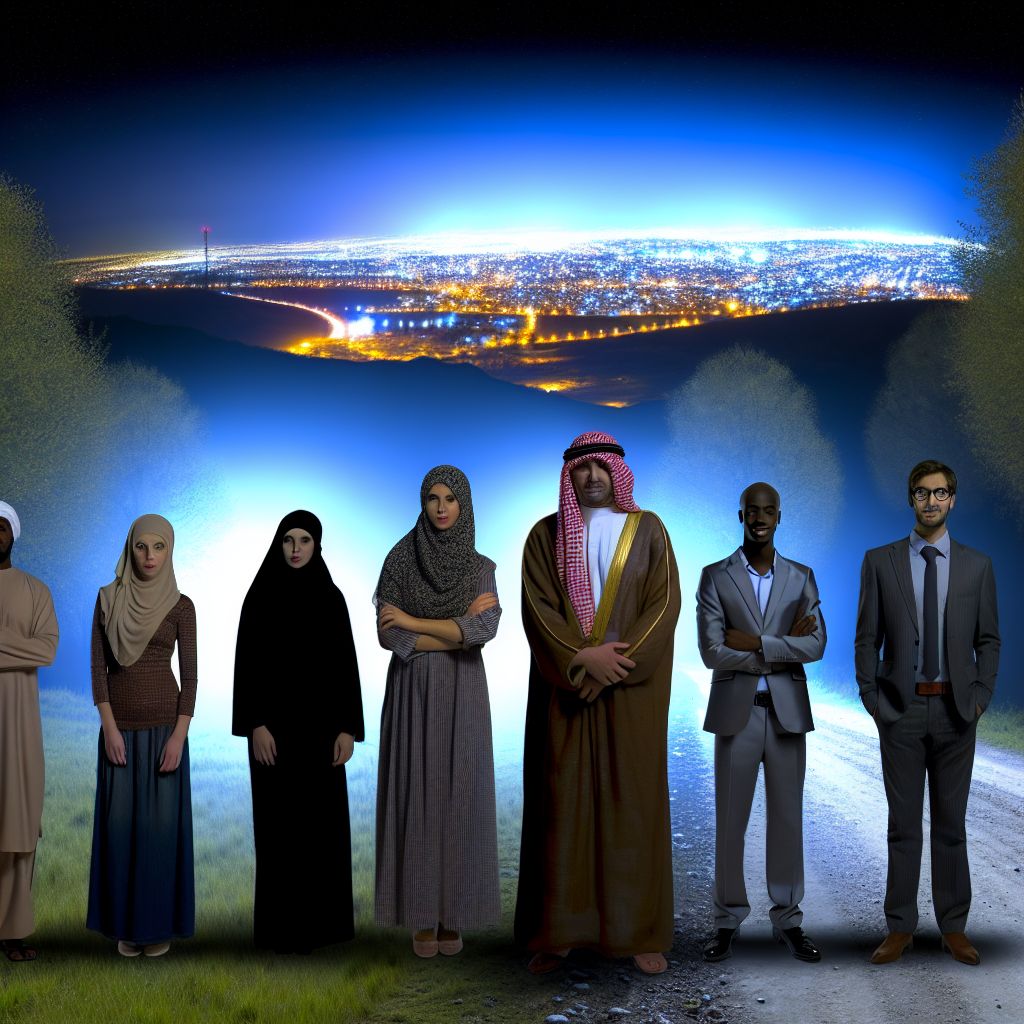Deutsch: Lichtverschmutzung / English: Light Pollution / Español: Contaminación Lumínica / Português: Poluição Luminosa / Français: Pollution Lumineuse / Italiano: Inquinamento Luminoso
Light pollution in the psychology context refers to the excessive or misdirected artificial light that disrupts the natural environment, affecting human health and behavior. While often discussed in environmental sciences, light pollution has significant psychological implications, influencing sleep patterns, mood, and overall well-being. Excessive exposure to artificial light, especially during nighttime, can interfere with the circadian rhythms, leading to sleep disturbances and a range of associated psychological effects.
Impacts on Psychological Health

- Sleep Disorders: Exposure to light at night, particularly blue light from screens, can suppress the production of melatonin, a hormone that regulates sleep, leading to difficulties in falling asleep and maintaining sleep.
- Mood Disorders: Disruption in circadian rhythms and sleep disturbances can contribute to mood disorders, including depression and anxiety.
- Cognitive Performance: Poor sleep quality and quantity can affect cognitive functions, such as memory, attention, and decision-making.
- Social and Behavioral Effects: The alteration of natural light patterns can also impact social behavior, including social interaction patterns and community well-being.
Mitigation Strategies
- Reducing Exposure: Limiting exposure to bright screens and artificial light sources in the evening can help mitigate some of the negative psychological effects.
- Use of Dimmers and Warm Lights: Using dimmers and lights that emit warmer colors, which have less impact on melatonin production, can reduce sleep disruption.
- Light Management Policies: Implementing policies to manage and reduce unnecessary outdoor lighting can help reduce overall light pollution.
- Public Awareness: Raising awareness about the effects of light pollution on health and well-being can encourage more responsible use of artificial lighting.
Research and Study
The study of light pollution in psychology involves interdisciplinary research, combining insights from environmental science, neuroscience, and psychology to understand the full impact of artificial light on human psychology and behavior. Ongoing research is crucial for developing effective strategies to mitigate these impacts and promote healthier living environments.
Conclusion
Light pollution has profound implications for psychological health, affecting sleep, mood, and cognitive performance. Understanding and addressing the sources and impacts of light pollution can help minimize its negative effects on human well-being and promote healthier environments for all.
--
Related Articles to the term 'Light pollution' | |
| 'Air pollution' | ■■■■■■■■■■ |
| Air Pollution in the context of psychology refers to the study of how exposure to pollutants in the air . . . Read More | |
| 'Adequate Sleep' | ■■■■■■■■■ |
| Adequate Sleep in the context of psychology refers to the optimal amount of sleep an individual requires . . . Read More | |
| 'Zeitgeber' | ■■■■■■■ |
| Zeitgeber is a term from German meaning \"time giver\" or \"synchronizer.\" In psychology, it refers . . . Read More | |
| 'Nocturnal' | ■■■■■■ |
| In the context of psychology, nocturnal refers to behaviors or phenomena that occur during the night. . . . Read More | |
| 'Stay Hydrated' | ■■■■■ |
| Stay Hydrated refers to maintaining an adequate level of water in the body, which has a significant impact . . . Read More | |
| 'Endocrinology' | ■■■■■ |
| Endocrinology in the context of psychology refers to the branch of medical science that focuses on the . . . Read More | |
| 'Peace' | ■■■■ |
| Peace in the psychology context refers to a state of mental and emotional calmness, where there is an . . . Read More | |
| 'Conversion' | ■■■■ |
| Conversion refers to the influence of a minority on a majority, based on convincing the majority that . . . Read More | |
| 'Zeitgebers' | ■■■ |
| Zeitgebers refer to external cues that reset the biological clock to be synchronized with the outside . . . Read More | |
| 'Concert' | ■■■ |
| In the psychology context, the term \"concert\" does not have a direct, specific meaning related to psychological . . . Read More | |